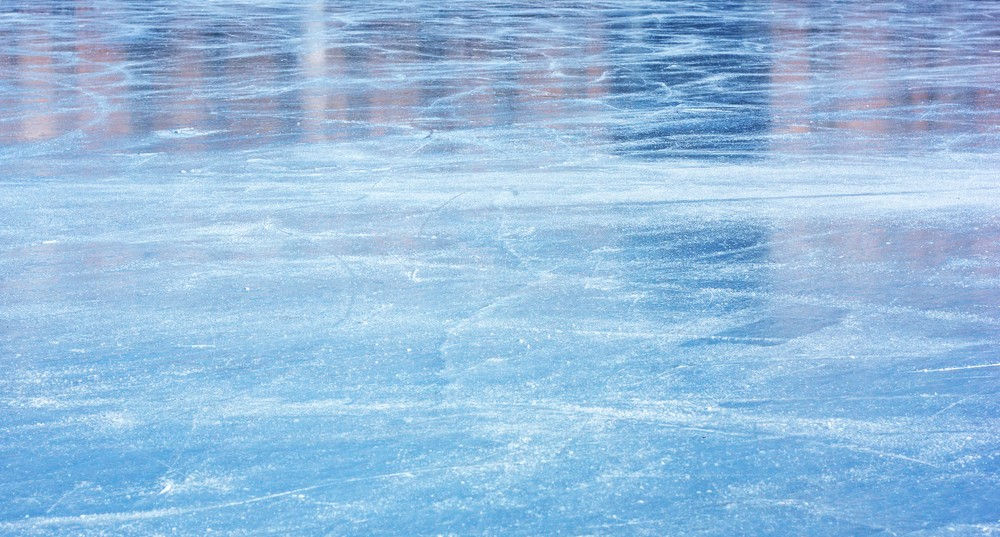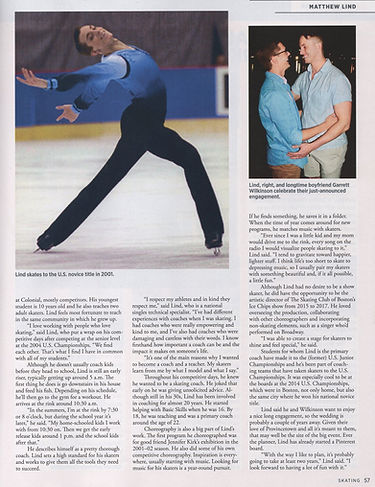
Check out Matt's interview with the Boston Globe on creating a cyber model for competition.
As Norwood facility remains silent, figure skaters make the jump to taped performances
By Kat Cornetta Globe Correspondent,Updated November 10, 2020, 1:05 p.m.
The rinks at Norwood’s Skating Club of Boston were scheduled to be chock-full of figure skaters this week vying for spots at January’s US Figure Skating Championships.
Instead, the elite skaters will be reviewing guidance from US Figure Skating about how to submit videotaped performances. The COVID-19 pandemic forced the organization to switch from an in-person competition to one held remotely.
“Everything is different in 2020,” said Matthew Lind, an area skating professional and judge.
It’s the second time the national championship qualifying structure has changed in this COVID-plagued year. With rink closures in the spring and summer keeping skaters from training, US Figure Skating decided in August to jettison the normal process, and move qualifying to eight competitions held over November.
The Skating Club of Boston’s facility in Norwood, which opened in September, was scheduled to host one of the events, which was scheduled to feature skaters from juvenile level up to senior (international) level in singles and pairs.
But on Nov. 2, a week before skaters were to take the ice in Norwood, US Figure Skating changed course, moving the competitions online and delaying them three weeks.
“While we understand many of our athletes and their families may be disappointed by this announcement, the health and safety of our members remain paramount,” US Figure Skating president Anne Cammett said in the announcement.
The area’s senior and junior skaters — the ranks of which have grown in the last few months, as top-level national coaches flock to the Skating Club of Boston’s facility — will now wait a few weeks to compete for a spot at the US Championships, scheduled for Jan. 11-21 in a bubble environment at the Orleans Arena in Las Vegas.
According to guidelines issued Monday night, skaters will need to apply, find an approved proctor (a rink professional who does not coach or choreograph for the skater), and schedule proctored video recordings of their short and long programs for a date provided between Nov. 30 and Dec. 8.
It’s far from the usual qualifying experience, which normally takes skaters to regional and sectional competitions in rinks across the East Coast. Skaters typically find out their fates for nationals in crowded and cold arena lobbies — one of the last places one would want to be during a pandemic.
Now, vying for nationals will take place in front of a camera and training mates — but not fans or judges.
Boston’s skating community is undaunted.
“Our club’s skaters are highly resilient,” said Doug Zeghibe, CEO and executive director of the Skating Club of Boston. “They are rolling with the punches.”
Earlier in the fall, US Figure Skating gave elite athletes a virtual competition opportunity called the International Selection Pool Points Challenge. That provided a test run for how national qualifying competitions could be moved online.
“We cleared a freestyle session to film those programs,” said Zeghibe. “We are already operating at a reduced capacity, and our elite skaters skate in the middle of the day, when it is not as busy to begin with.”
The test runs were key, because virtual competitions are largely new to figure skating. They began to pop up this summer when COVID-19 put the sport’s usual slate of summer club competitions on ice. Boxborough’s Colonial Figure Skating Club hosted a series over the summer, which Lind put together with his fellow coaches.
“I ran the idea by some judging friends of mine, and asked, ‘How could we make this work?’ ” said Lind.
Lind and his colleagues decided to offer the competition for critique only, not for use within US Figure Skating’s record-keeping systems. Not only did it work, it was surprisingly efficient for judges and officials.
“The technical panel would view the video first, and then the judges would view it,” said Lind. “We could leave notes to each other. It was no more time than judging a normal event.”
US Figure Skating’s Monday announcement did leave skaters at the lower competitive levels — juvenile through novice — without a competitive outlet for the time being. The organization said it is still organizing programming for those levels in early 2021.
But some rinks are taking matters into their own hands, creating opportunities for those skaters who were prepared to compete in their largest competition of the season this week. The Skating Club of Boston is holding a performance opportunity, where the club’s approximately 60 athletes on those levels will skate for critiques by judges and officials. No placements will be offered, but it gives the skaters a goal during an odd season.
“There’s no first, second, or third place,” said Zeghibe. “But they can finish out this year’s competitive season.”
Lind thinks virtual competitions might just become commonplace.
“I think there is a place for it, even after the pandemic is over,” said Lind. “It’s really a cost-effective model, and it gives skaters more opportunities.”



